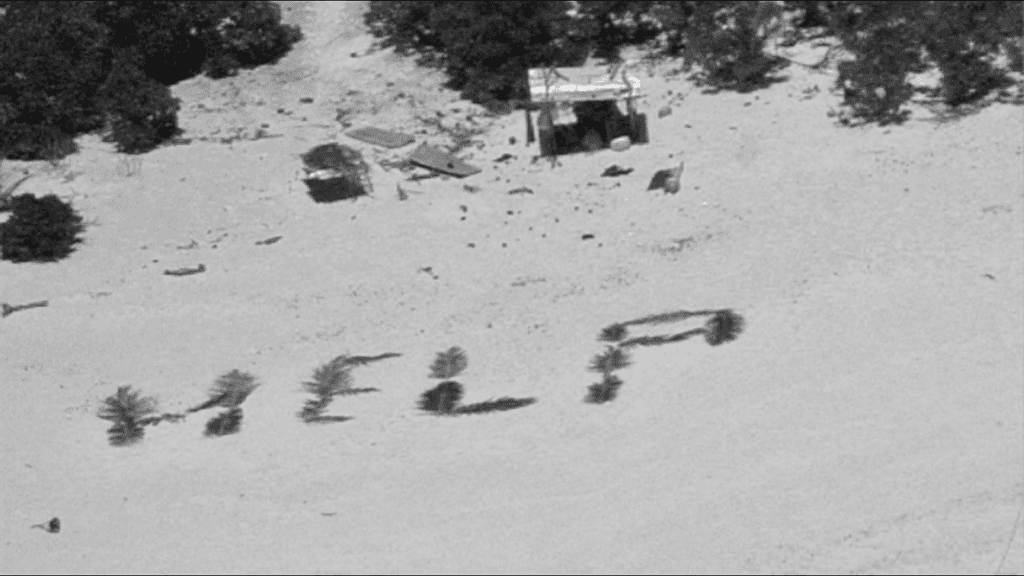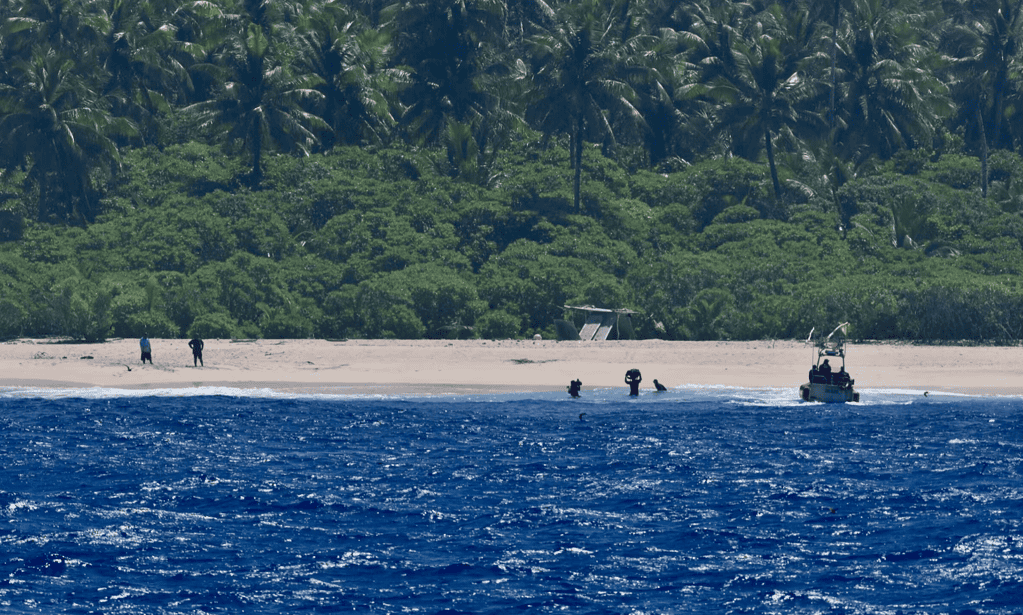Movies and literature abound with the trope of people getting lost on remote islands. The events and outcomes of castaways vary wildly, but one common theme is trying to signal to potential rescuers that you’re there — and one common approach is writing “HELP” on the beach.
Well, it’s not just for movies, it also works in real life. The US Coast Guard rescued three men from an island in Micronesia after reading their “HELP” written with palm tree leaves.

The three sailors were all experienced men in their 40s. They reportedly set out from Polowat Atoll, a coral atoll in Micronesia, an island nation that comprises over 600 islands. The sailors left in a 20-foot open skiff with an outboard motor. After they didn’t return for a few days, the US Coast Guard started actively looking for them.


“In a remarkable testament to their will to be found, the mariners spelled out “HELP” on the beach using palm leaves, a crucial factor in their discovery. This act of ingenuity was pivotal in guiding rescue efforts directly to their location” said Lt. Chelsea Garcia, the search and rescue mission coordinator. “This successful operation underscores the effective coordination and partnership between the U.S. Coast Guard, the U.S. Navy, and regional partners. We extend our gratitude to everyone involved.”
Initially, the Coast Guard couldn’t go out to rescue them. Instead, they airdropped survival packages and a radio to them. The castaways said they were in good health and had access to food and water, but their skiff was unusable.
Two days later, the coast guard were able to rescue the men and bring them back to Polowat.
“Whether we’re out there protecting valuable resources or saving lives, we’re not just visitors — we’re members of this vibrant maritime community that connects all these islands,” said Lt. Ray Cerrato, commanding officer of USCGC Oliver Henry. “This recent operation near Pikelot Atoll hits home the kind of difference we can make. It’s about more than just performing a duty; it’s about the real human connections we forge and the lives we touch. Every day, I’m reminded of the impact we have and the bonds we build. It’s incredibly rewarding to see the faces of those we’ve helped.”
Ironically, this isn’t the first time writing on the beach helped people on Pikelot Atoll. Pikelot has no permanent inhabitants. However, it does have a rich ecosystem, with a forest and extensive fringing reefs. The islet is also home to a major seabird rookery, a turtle nesting area, and a few mangroves. Thanks to this, it’s often visited by hunters, fishermen, and people looking to enjoy the landscape.
<!– Tag ID: zmescience_300x250_InContent_3
–>
In 2020, three such people also got stranded on Pikelot. They were rescued after writing “SOS” on the beach.
So, if you’re unfortunate enough to get stranded, leave a message on the beach.
Thanks for your feedback!

